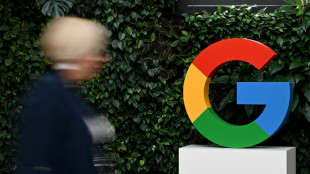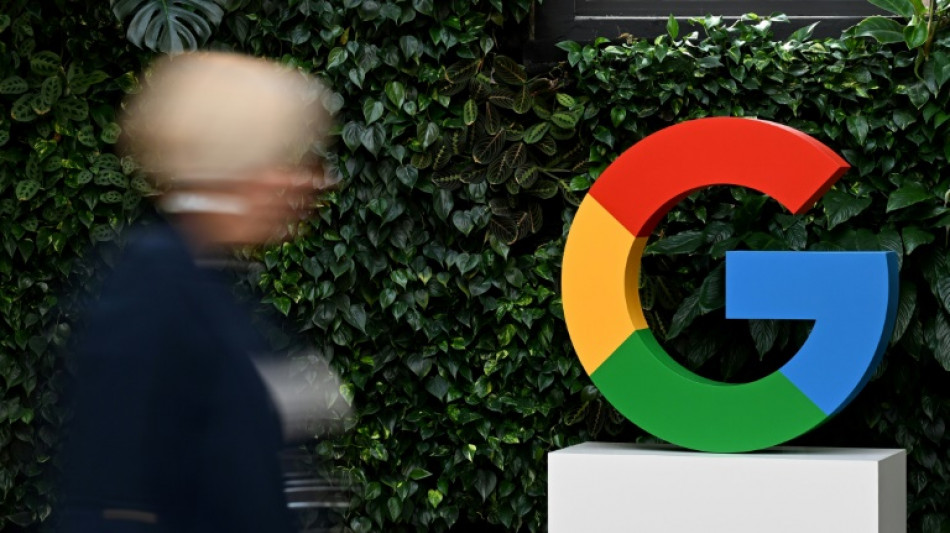
-
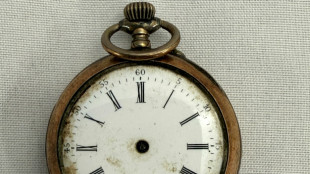 Pocket watch found on Titanic victim to go on sale in UK
Pocket watch found on Titanic victim to go on sale in UK
-
UK top court rules definition of 'a woman' based on sex at birth

-
 All Black Ioane to join Leinster on six-month 'sabbatical'
All Black Ioane to join Leinster on six-month 'sabbatical'
-
Barca suffer morale blow in Dortmund amid quadruple hunt

-
 China tells Trump to 'stop threatening and blackmailing'
China tells Trump to 'stop threatening and blackmailing'
-
Iran FM says uranium enrichment 'non-negotiable' after Trump envoy urged halt

-
 Automakers hold their breath on Trump's erratic US tariffs
Automakers hold their breath on Trump's erratic US tariffs
-
Cycling fan admits throwing bottle at Van der Poel was 'stupid'

-
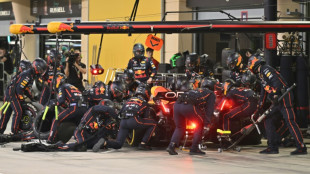 Troubled Red Bull search for path back to fast lane
Troubled Red Bull search for path back to fast lane
-
China's forecast-beating growth belies storm clouds ahead: analysts
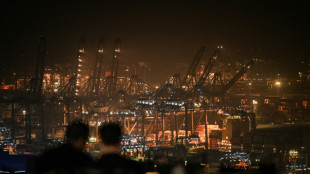
-
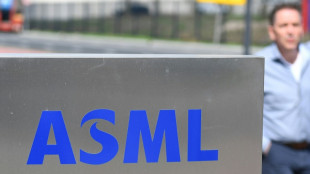 ASML CEO sees growing economic 'uncertainty' from tariffs
ASML CEO sees growing economic 'uncertainty' from tariffs
-
Heineken beer sales dip, tariffs add to uncertainty

-
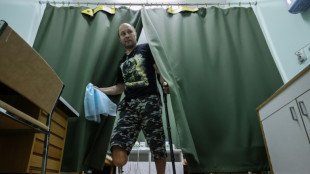 Rehab centre for Russian veterans from Ukraine fills up
Rehab centre for Russian veterans from Ukraine fills up
-
Dutch flower industry grasps thorny pesticide issue

-
 Solar boom counters power shortages in Niger
Solar boom counters power shortages in Niger
-
Malnourished children in Afghanistan at 'high risk of dying' without US aid

-
 Skating comeback queen Liu says she can get even better for Olympics
Skating comeback queen Liu says she can get even better for Olympics
-
'Let's rock': world music icon Youssou N'Dour back on the road
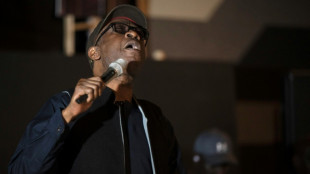
-
 Mackerel and missiles: EU-UK defence deal snags on fish
Mackerel and missiles: EU-UK defence deal snags on fish
-
Istanbul's Hagia Sophia prepares for next big quake

-
 'Magician' Chahal casts spell with IPL heroics
'Magician' Chahal casts spell with IPL heroics
-
WHO countries strike landmark agreement on tackling future pandemics

-
 Kerr salutes Harvard defiance over Trump after Warriors win
Kerr salutes Harvard defiance over Trump after Warriors win
-
Canada party leaders hold high-stakes debate two weeks from vote

-
 As war grinds on, Ukraine's seniors suffer
As war grinds on, Ukraine's seniors suffer
-
ASML CEO sees 'increased macro uncertainty' from tariffs
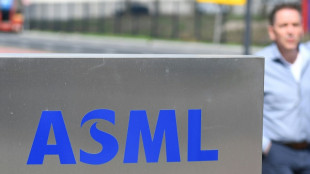
-
 Pope leaves faithful guessing over Easter appearances
Pope leaves faithful guessing over Easter appearances
-
Butler, 'Batman' Curry shine as Warriors down Grizzlies to reach playoffs

-
 Skating 'Quad God' Malinin ready for Olympic favourite tag
Skating 'Quad God' Malinin ready for Olympic favourite tag
-
Toppmoeller has ascendant Frankfurt challenging their limits

-
 Cambodia's Chinese casino city bets big on Beijing
Cambodia's Chinese casino city bets big on Beijing
-
Vespa love affair: Indonesians turn vintage scooters electric

-
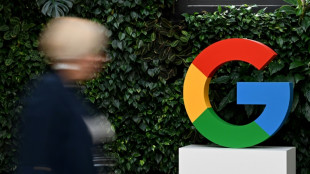 Europe seeks to break its US tech addiction
Europe seeks to break its US tech addiction
-
Long-abandoned Welsh mine revived as gold prices soar
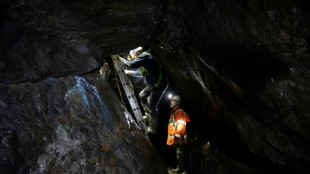
-
 UK's top court to rule on how to define a 'woman'
UK's top court to rule on how to define a 'woman'
-
WHO countries reach landmark agreement on tackling future pandemics

-
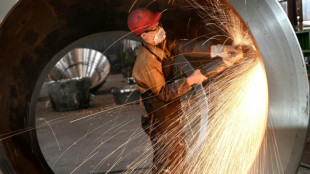 Stocks struggle again as Nvidia chip curb warning pops calm
Stocks struggle again as Nvidia chip curb warning pops calm
-
China's economy beats forecasts ahead of Trump's 'Liberation Day'
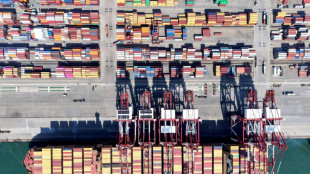
-
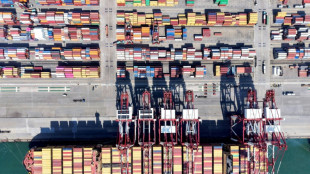 China's economy beat forecasts in first quarter ahead of Trump's 'Liberation Day'
China's economy beat forecasts in first quarter ahead of Trump's 'Liberation Day'
-
Trump orders critical minerals probe that may bring new tariffs
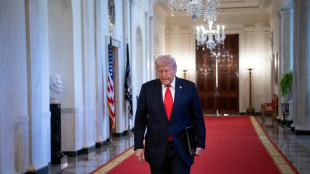
-
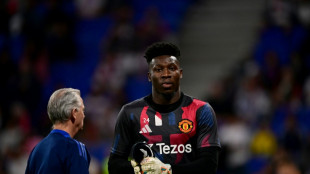 Onana faces date with destiny as Man Utd chase Lyon win
Onana faces date with destiny as Man Utd chase Lyon win
-
Lessons in horror with Cambodia's Khmer Rouge tribunal

-
 Pandemic agreement: key points
Pandemic agreement: key points
-
Paramilitaries declare rival government as Sudan war hits two-year mark

-
 Landmark agreement reached at WHO over tackling future pandemics
Landmark agreement reached at WHO over tackling future pandemics
-
'La bolita,' Cuban lottery offering hope in tough times

-
 'Toxic beauty': Rise of 'looksmaxxing' influencers
'Toxic beauty': Rise of 'looksmaxxing' influencers
-
Facebook added 'value' to Instagram, Zuckerberg tells antitrust trial

-
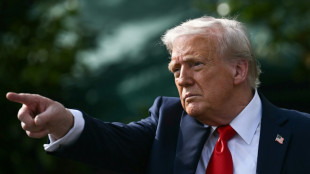 Trump signs order aimed at lowering drug prices
Trump signs order aimed at lowering drug prices
-
Paramilitaries declare rival government as Sudan war enters third year


Europe seeks to break its US tech addiction
With President Donald Trump more unpredictable than ever and transatlantic ties reaching new lows, calls are growing louder for Europe to declare independence from US tech.
From Microsoft to Meta, Apple to Uber, cloud computing to AI, much of the day-to-day technology used by Europeans is American.
The risks that brings were hotly debated before Trump returned to power, but now Europe is getting serious -- pushing to favour European firms in public contracts and backing European versions of well-known US services.
As Europe faces Trump's tariffs, and threatens to tax US tech unless the two sides clinch a deal averting all-out trade war, there is a growing sense of urgency.
Tech sovereignty has been front and centre for weeks: the European Union unveiled its strategy to compete in the global artificial intelligence race and is talking about its own payment system to rival Mastercard.
"We have to build up our own capacities when it comes to technologies," EU tech chief Henna Virkkunen has said, identifying three critical sectors: AI, quantum and semiconductors.
A key concern is that if ties worsen, Washington could potentially weaponise US digital dominance against Europe -- with Trump's administration already taking aim at the bloc's tech rules.
That is giving fresh impetus to demands by industry, experts and EU lawmakers for Europe to bolster its infrastructure and cut reliance on a small group of US firms.
"Relying exclusively on non-European technologies exposes us to strategic and economic risks," said EU lawmaker Stephanie Yon-Courtin, who focuses on digital issues, pointing to US limits on semiconductor exports as one example.
- 'Buy European' push -
The data paints a stark picture.
Around two-thirds of Europe's cloud market is in the hands of US titans: Amazon, Microsoft and Google, while European cloud providers make up only two percent.
Twenty-three percent of the bloc's total high-tech imports in 2023 came from the United States, second only to China -- in everything from aerospace and pharmaceutical tech to smartphones and chips.
Although the idea of a European social media platform to rival Facebook or X is given short shrift, officials believe that in the crucial AI field, the race is far from over.
To boost European AI firms, the EU has called for a "European preference for critical sectors and technologies" in public procurement.
"Incentives to buy European are important," Benjamin Revcolevschi, chief executive of French cloud provider OVHcloud, told AFP, welcoming the broader made-in-Europe push.
Alison James, European government relations lead at electronics industry association IPC, summed it up: "We need to have what we need for our key industries and our critical industries to be able to make our stuff."
There are calls for greater independence from US financial technology as well, with European Central Bank chief Christine Lagarde advocating a "European offer" to rival American (Mastercard, Visa and Paypal) and Chinese payment systems (Alipay).
Heeding the call, EU capitals have discussed creating a "truly European payment system".
Industry insiders are also aware building tech sovereignty requires massive investment, at a moment when the EU is pouring money into defence.
In an initiative called EuroStack, digital policy experts said creating a European tech ecosystem with layers including AI would cost 300 billion euros ($340 billion) by 2035.
US trade group Chamber of Progress puts it much higher, at over five trillion euros.
- Different values -
US Vice President JD Vance has taken aim at tech regulation in denouncing Europe's social and economic model -- accusing it of stifling innovation and unfairly hampering US firms, many of whom have aligned with Trump's administration.
But for many, the bloc's values-based rules are another reason to fight for tech independence.
After repeated abuses by US Big Tech, the EU created major laws regulating the online world including the Digital Markets Act (DMA) and the Digital Services Act (DSA).
Much to the chagrin of US digital giants, the EU in 2018 introduced strict rules to protect European users' data, and last year ushered in the world's broadest safeguards on AI.
In practice, supporters say the DMA encourages users to discover European platforms -- for instance giving users a choice of browser, rather than the default from Apple or Google.
Bruce Lawson of Norwegian web browser Vivaldi said there was "a significant and gratifying increase in downloads in Europe", thanks in large part to the DMA.
Lawson insists it's not about being anti-American.
"It's about weaning ourselves off the dependency on infrastructure that have very different values about data protection," Lawson said.
Pointing at rules in Europe that "don't necessarily exist in the United States", he said users simply "prefer to have their data processed by a European company".
S.Leonhard--VB


